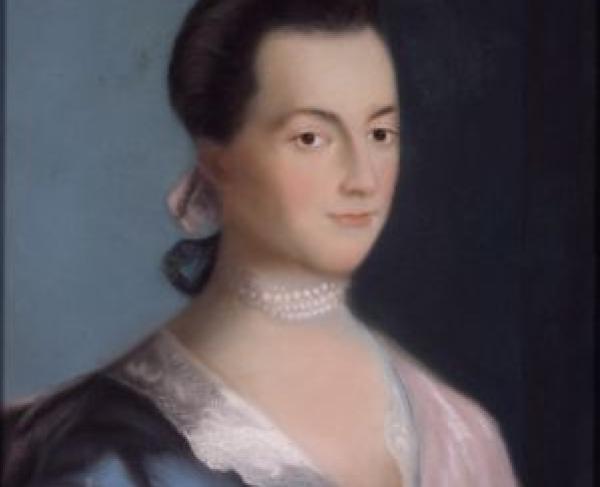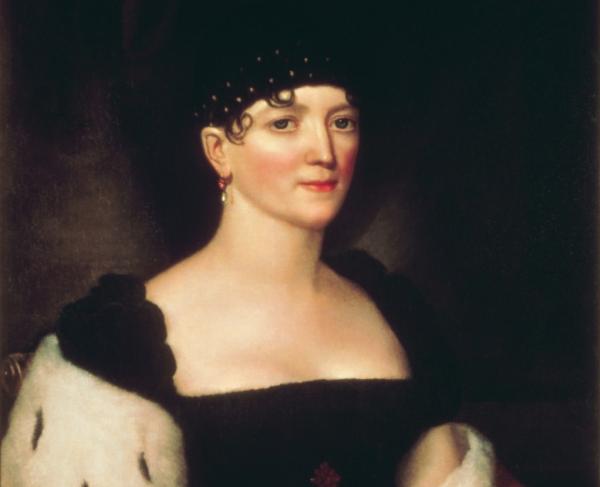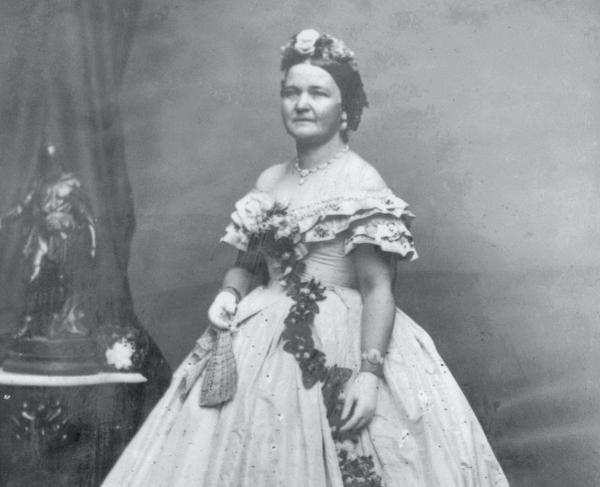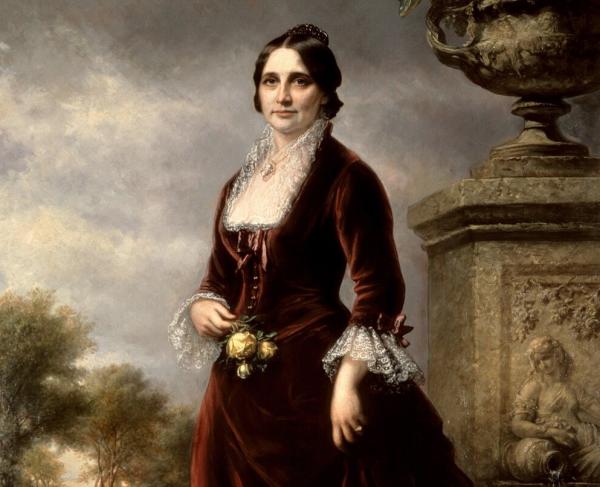Abigail Adams

Abigail Smith Adams, wife and confidant of John Adams, was born on November 11, 1744 in Weymouth, Massachusetts. She was a member of the Quincy family, a well-established and politically involved Massachusetts family. By birthright and manner, Abigail Smith was an indefatigable New Englander. Educated by her mother, the future First Lady proved as learned and enlightened as any of her contemporaries. Abigail was a voracious reader and wrote extensively. Notwithstanding the stigma associated with women and politics, Abigail openly expressed her political beliefs in letters to her husband. She confessed “my pen is always freer than my tongue.”
In 1764, at age 19, she married John Adams and moved to his home in Braintree, Massachusetts. John's duties as a member of the Continental Congress and diplomat often kept him from home. Staying behind to tend to the farm, Abigail would often write to her husband, informing him on various public and private affairs, lending special attention to the political vicissitudes of the day. Throughout her lifetime, Abigail’s letters were unapologetically opinionated. From a modern perspective, she was a stalwart feminist, a champion of women's rights and equality under the law. As the fledgling country was starting to take shape, Abigail penned in a letter to her husband, “I desire you would Remember the ladies, and be more generous and favourable to them than your ancestors. Do not put such unlimited power into the hands of the Husbands.” John rarely disagreed with his wife. The letters between Abigail and John Adams demonstrate the mutual intellectual respect the couple shared. Indeed, her intellect was widely appreciated. In 1775, she was solicited to join a select, all-female jury to question Massachusetts women suspected of Loyalist tendencies. It was here that Abigail performed her first public responsibility.
Interestingly enough, public life did not appeal to Mrs. Adams. Assuming the role of First Lady in 1796, Abigail did not consider this social ascension to be favorable by any means. In fact, she described the position as one where she felt “fastened up hand and foot and tongue to be shot at.” For Abigail, the presidential prerogatives did not make up for the scrutiny she faced daily as First Lady. “I expect to be vilified and abused,” she once admitted.
The distaste Abigail had for public life did not, however, detract from her commitment to her husband's presidency. Confident in John's political acumen, Abigail wholeheartedly supported the Alien and Sedition Act, even though it was one of the President’s most controversial pieces of legislation. When the French Revolution wreaked havoc on the Adams administration, Abigail, invested as usual, urged her husband to declare war against France. She also encouraged newspapers to publish her editorial writings which openly supported the administration. Evidently, any criticism the First Lady endured did little to silence her voice.
When Thomas Jefferson succeeded John Adams in the election of 1800, Abigail was, by that point, “sick, sick, sick, of public life.” She and her husband finally returned home to Braintree where she would live out the rest of her life, dying at age 73 on October 28, 1818.


